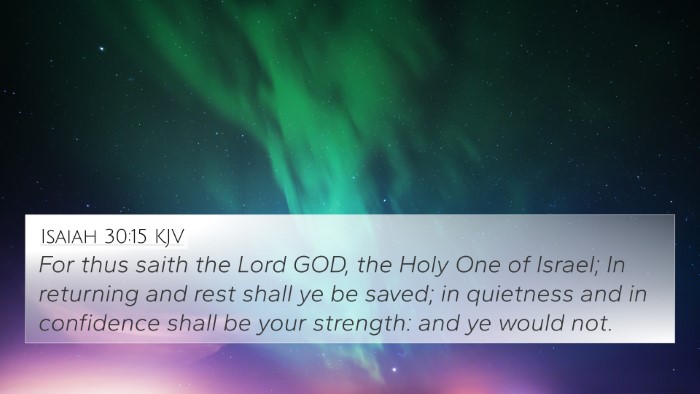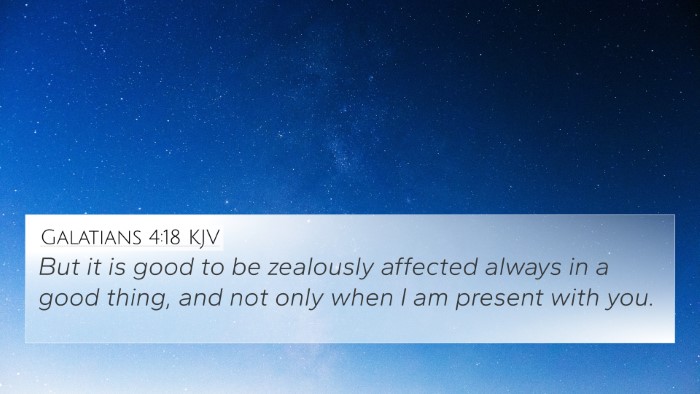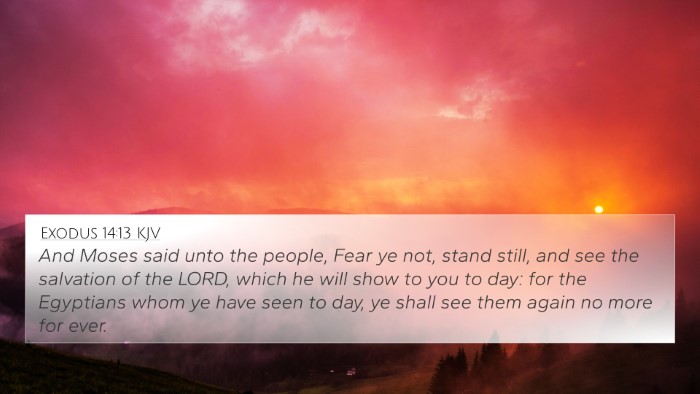Lamentations 3:26 states, "It is good that one should wait quietly for the salvation of the Lord." This poignant verse encapsulates a critical theme found throughout the book of Lamentations, which deals with profound grief and despair yet revolves around hope and faith in God's ultimate deliverance.
Meaning and Context: Lamentations is attributed to Jeremiah, reflecting the collective sorrow of the Israelites after Jerusalem's fall. This specific verse encourages the believer to embrace patience and quietness while awaiting God's salvation. In times of suffering, the verse highlights the importance of trusting in divine timing rather than succumbing to despair.
Commentary Insights:
- Matthew Henry: He emphasizes the value of waiting for God, asserting that in quietness and trust, believers can find true strength. He highlights that waiting is not merely passive but a demonstration of faith in God's providence, reminding the faithful that deliverance often comes in God's appointed time.
- Albert Barnes: Barnes interprets the phrase as an invitation to patience, noting that waiting for God's salvation is a sign of spiritual maturity. He remarks that this waiting period allows for reflection and preparation, affirming that the salvation promised is both spiritual and temporal, implicating a holistic restoration.
- Adam Clarke: Clarke expounds on the idea that there is merit in waiting, indicating the spiritual richness that can be found through sustained hope. He discusses how quietness during adversity can lead to deeper understanding and reliance on God, which ultimately shapes a resilient faith.
Related Bible Cross-References:
- Psalm 27:14: "Wait for the Lord; be strong, and let your heart take courage; wait for the Lord!" This verse encapsulates the theme of patience and reinforces the encouragement to trust in God.
- Isaiah 40:31: "But they who wait for the Lord shall renew their strength; they shall mount up with wings like eagles; they shall run and not be weary; they shall walk and not faint." This verse echoes the promise of strength for those who patiently await the Lord's intervention.
- Romans 8:25: "But if we hope for what we do not see, we wait for it with patience." This New Testament reflection parallels the Lamentations verse by emphasizing hope and the virtue of waiting.
- Hebrews 10:36: "For you have need of endurance, so that when you have done the will of God, you may receive what is promised." This verse underscores the necessity of patience in the Christian journey.
- Micah 7:7: "But as for me, I will look to the Lord; I will wait for the God of my salvation; my God will hear me." This verse reflects the longing for divine attention and the assurance of eventual salvation.
- James 5:7: "Be patient, therefore, beloved, until the coming of the Lord. The farmer waits for the precious crop from the earth, being patient with it until it receives the early and the late rains." This verse draws a parallel between agricultural waiting and spiritual expectancy.
- Psalm 130:5: "I wait for the Lord, my soul waits, and in his word I hope." This verse emphasizes the connection between waiting for God and placing hope in His promises.
Applications and Reflections: When considering Lamentations 3:26 in conjunction with these other verses, believers are invited to reflect on the significance of endurance and patient faith in the face of life's challenges. The interconnectedness of these scriptures illustrates a biblical theme that transcends individual passages—a theme of hope, reliance, and ultimate salvation through God.
SEO Context: For those exploring the breadth of biblical teachings, tools for Bible cross-referencing can enhance understanding. By tracing bible verse connections and identifying cross-referencing Biblical texts, one can gain deeper insights into the meanings and messages inherent in scripture. Utilizing resources such as a bible concordance or a bible cross-reference guide enables readers to uncover thematic Bible verse connections leading to a more comprehensive study of biblical themes, particularly in resonant texts like Lamentations 3:26.




















